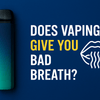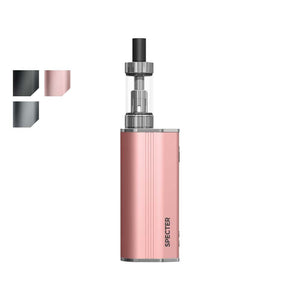Is Vaping Worse Than Smoking? Unveiling the Truth and Empowering Informed Choices

Is Vaping Worse Than Smoking? Unveiling the Truth and Empowering Informed Choices
The ongoing debate surrounding vaping and smoking inevitably leads to a pivotal inquiry: Is vaping worse than smoking? This question resonates not only with vape enthusiasts but also with smokers contemplating a switch and health-conscious individuals seeking clarity. The definitive answer, firmly supported by scientific research, is a resounding no.
However, comprehending the nuances necessitates delving beyond this simple answer. We must explore the science, compare the associated risks, and debunk persistent myths that often obscure the facts.
The Smoking Pandemic: A Global Health Crisis
Smoking's devastating impact on public health is undeniable. It stands as a leading cause of preventable death worldwide, claiming millions of lives prematurely each year. The harmful consequences of smoking are well-documented and far-reaching, encompassing an increased risk of:
- Various Cancers: Lung, throat, mouth, bladder, and numerous other cancers
- Cardiovascular Diseases: Heart disease, stroke, and peripheral artery disease
- Respiratory Conditions: Chronic obstructive pulmonary disease (COPD), emphysema, and chronic bronchitis
- Other Health Issues: Diabetes, osteoporosis, and reproductive complications
The detrimental effects of smoking extend beyond the individual, impacting families, communities, and healthcare systems.
The Rise of Vaping: A Harm Reduction Tool
In recent years, vaping or the use of electronic cigarettes has emerged as a potential alternative to traditional smoking. These devices function by heating a liquid, commonly containing nicotine, to generate an aerosol that is inhaled. Many smokers have turned to vaping as a tool to quit or significantly reduce their smoking habit.
Unraveling the Risks: Vaping vs. Smoking
Smoking
- Chemical Composition: A complex cocktail of over 7,000 chemicals, including numerous known carcinogens and toxins like tar, carbon monoxide, arsenic, and formaldehyde.
- Health Impacts: Inflicts severe damage to the lungs, heart, blood vessels, and other organs. Dramatically increases the risk of a wide array of diseases, including cancer, heart disease, COPD, and stroke.
- Addiction Potential: Highly addictive due to the presence of nicotine, coupled with other addictive chemicals in tobacco smoke.
Vaping
- Chemical Composition: Contains significantly fewer chemicals than smoking, primarily consisting of nicotine, propylene glycol, vegetable glycerin, and flavorings.
- Health Impacts: While not completely risk-free, potential harms are substantially lower than those associated with smoking. May cause some lung irritation and inflammation. Long-term effects are still being actively researched, but current evidence suggests they are far less severe.
- Addiction Potential: Can be addictive due to nicotine content, but generally less addictive than traditional cigarettes due to the absence of other addictive substances found in tobacco smoke.
Examining the Evidence: Science Speaks
A multitude of studies have meticulously compared the health risks of vaping and smoking. The overwhelming consensus is clear: vaping is significantly less harmful than smoking.
Esteemed public health organizations, including Public Health England and the Royal College of Physicians, have openly endorsed vaping as a harm reduction tool, citing its potential to save lives.
Key findings from research:
- Vaping exposes users to considerably lower levels of toxicants compared to smoking.
- Vaping proves effective in helping smokers quit or reduce their cigarette consumption.
- While long-term health implications of vaping require further investigation, current evidence strongly suggests they are considerably less severe than those linked to smoking.
Dispelling the Myths: Separating Fact from Fiction
Despite compelling evidence, numerous misconceptions about vaping continue to circulate, fostering confusion and apprehension. It's imperative to address these misconceptions to foster informed choices.
Misconception 1: Vaping is just as bad as smoking.
This notion is patently false. Although vaping entails some risks, it's crucial to underscore its significantly reduced harm compared to smoking. The stark contrast in chemical composition alone reinforces this truth.
Misconception 2: Vaping causes "popcorn lung."
This is a largely debunked myth. The chemical associated with popcorn lung (diacetyl) is seldom present in e-liquids, and even when it is, the levels are negligible compared to those encountered in cigarette smoke.
Misconception 3: Vaping is a gateway to smoking.
Evidence contradicts this claim. Vaping can serve as an off-ramp from smoking, potentially discouraging young people from initiating tobacco use.
Misconception 4: Secondhand vapor is hazardous.
Studies reveal that secondhand vapor poses minimal risk to bystanders, significantly lower than secondhand smoke exposure.
Weighing the Options: Making Informed Choices
When faced with the decision between vaping and smoking, it's imperative to conduct a comprehensive risk-benefit assessment. If you're a current smoker, transitioning to vaping represents a proactive step toward a healthier lifestyle.
The Role of Regulation: Ensuring Safety and Responsibility
Effective regulation of the vaping industry is crucial to ensure product safety, prevent youth access, and promote responsible marketing practices.
Vaping's Future: A Tool for Tobacco Harm Reduction
The vaping landscape is continuously evolving, driven by technological innovation and ongoing research. Vaping is poised to play an increasingly significant role in harm reduction strategies, empowering smokers to break free from combustible tobacco's grip.
Additional Considerations: Beyond the Basics
Beyond the core comparison between vaping and smoking, it's essential to consider other aspects:
- Mental Health: Smoking cessation, whether through vaping or other means, can positively impact mental health by reducing anxiety and improving mood.
- Social Benefits: Vaping eliminates the social stigma associated with smoking, allowing for greater inclusion and acceptance.
- Financial Implications: Vaping can be more cost-effective than smoking in the long run, saving individuals significant amounts of money.
- Environmental Impact: Vaping generates less environmental pollution compared to traditional smoking, contributing to a cleaner planet.
Conclusion: Empowering Your Choice
In conclusion, while vaping is not entirely risk-free, it represents a far less harmful alternative to smoking. If you're a smoker determined to quit, consider embracing vaping as a powerful cessation tool.
Ready to embark on your journey toward a smoke-free life? Explore the vast selection of vaping products at Mister Vape. We offer a comprehensive range of e-cigarettes, e-liquids, and accessories tailored to meet your unique needs and preferences.
Our knowledgeable team is dedicated to supporting you every step of the way, ensuring you find the perfect products to start your vaping experience. Visit our website today and take the first step towards a healthier and happier you!






